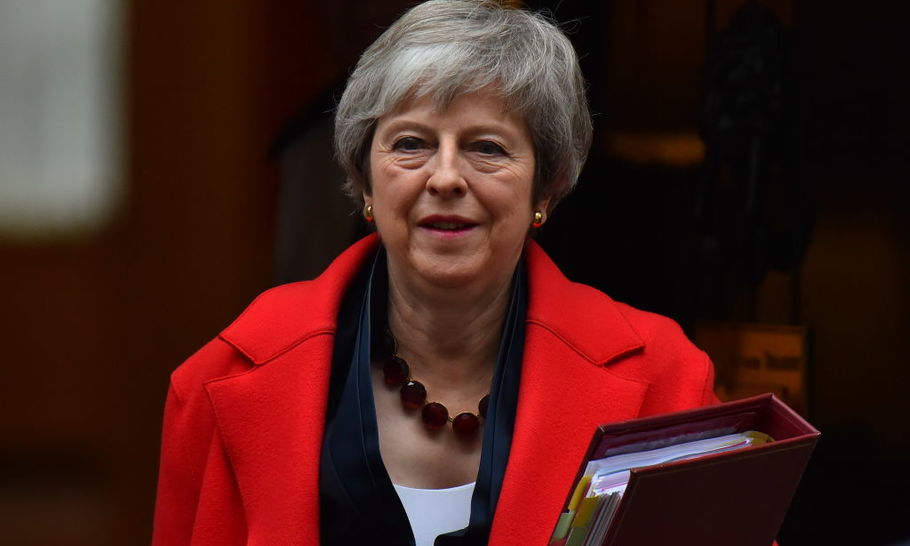"More runners and riders than the Grand National" is exactly what we need in this leadership race

Photo by Alberto Pezzali/NurPhoto via Getty Images
Theresa May shows great tenacity in refusing to leave Downing Street. Whenever colleagues ask her for a clear timetable for her departure she makes a couple of notes, says nothing and changes the subject. My own hunch is that she will cling on to office for as long as she can – doubtless persuading herself that it is her duty to do so. It will be necessary for her to be evicted.
This is awkward for Conservative MPs. Last December they voted – by 200 votes to 117 – to reject a motion of no confidence in her. Under the rules, that vote was supposed to settle the matter for minimum of 12 months. Isn’t changing the rules rather bad form? Perhaps. But for all their vacillating, Conservative MPs do retain some survival instincts. The signals that a leadership change is urgently required could scarcely be clearer. Needs must when the devil drives.
Furthermore, while many Conservative MPs are dithering, the wider Party membership have had enough. A motion of no confidence in May continuing as Tory leader is due to be debated by the Conservative National Convention on June 15th. This body is described by the Conservative Party as “effectively the parliament of the voluntary Party”. It consists of all constituency association plus “officers from Areas and Regions as well as 42 representatives from Young Conservatives and the Conservative Women’s Organisation.” The indications are that the motion has strong support.
If May has not been removed by the time the meeting takes place and the motion is passed, then it really would be difficult to see how she could cling on. The prospect of it happening is concentrating minds. If Conservative MPs delay much longer they might find they are overtaken by events.
Whatever happens, the culture among the Conservative membership has changed. Follies at Westminster used to be accepted with a tired shrug. There was a strong tradition of deference. There would not be widespread interest in policy, but great loyalty to the MPs – especially to whoever happened to be Leader at the time. Now there is very strong interest in one particular policy – Brexit. There is also a complete erosion of trust in the Party leadership.
Even if a “clean break” or “no deal” Brexit materialises under a new Leader, I suspect the old deference will not return. For better or worse the outbreak of independent thinking will prove permanent. The analogy of Tory activists as “troops” to be “kept in line” will no longer ring true.
Impatience among leadership rivals means the race is well underway. Rather than a formal declaration, candidates are photographed with their spouses in their kitchens for a newspaper colour supplement.
Among cabinet ministers, we have Sajid Javid, Jeremy Hunt, Penny Mordaunt, Matt Hancock, Michael Gove, Rory Stewart, Amber Rudd, Liz Truss and Andrea Leadsom. Probably others. They all suffer by guilt by association with May. They are all implicated in going along with her Brexit deal – regarded by many Conservatives to be a proposal that would effectively be non-voting membership of the EU, a “vassal state” arrangement that would leave us as an EU “colony”. The Cabinet is also culpable for the PM being able to continue when they could and should have forced her out.
So perhaps someone from outside the Cabinet would find greater favour. Boris Johnson, Dominic Raab, Steve Baker and Esther McVey and among many names put forward.
Some feel the numbers coming forward is all a bit vulgar and embarrassing. The Tory MP Nigel Evans predicts the contest will have “more runners and riders than the Grand National”. Part of the explanation is that May has set the bar low: an awful lot of Tory MPs say to themselves, “I could do a better job than that.”
But there is a more positive way of looking at it. Competition and ambition are healthy. It shows that the Conservative Party still has some energy and determination to succeed. Leadership candidates are not only offering personal trivia but also setting out their policies and ideas. If we start out with a large number of contestants the system can cope. Their fellow MPs will rapidly whittle them down to the final two, who will then be put before the Party membership, understood to be around 130,000.
Last time around it was a coronation. Theresa May became the Leader on 13th July 2016 after her rivals all self destructed. There was great relief to most Conservatives at the time who felt it meant unity. With hindsight, some might have preferred the rigour and scrutiny of the contest taking its full course, with debates around the country.
Back in 1964, Iain Macleod wrote in The Spectator about the Tory leadership being determined by the “magic circle”. Not even Tory MPs had a vote. This was how Alec Douglas-Home became Prime Minister. Macleod was among those out of the loop: “Home we never mentioned in any connection…although for a brief moment his star seemed to have flared at Blackpool. It is some measure of the tightness of the magic circle on this occasion that neither the Chancellor of the Exchequer nor the Leader of the House of Commons had any inkling of what was happening.”
Surely it is better for the matter to be resolved in a fair and open manner? Those who grumble that there is too much competition should consider the alternative.





